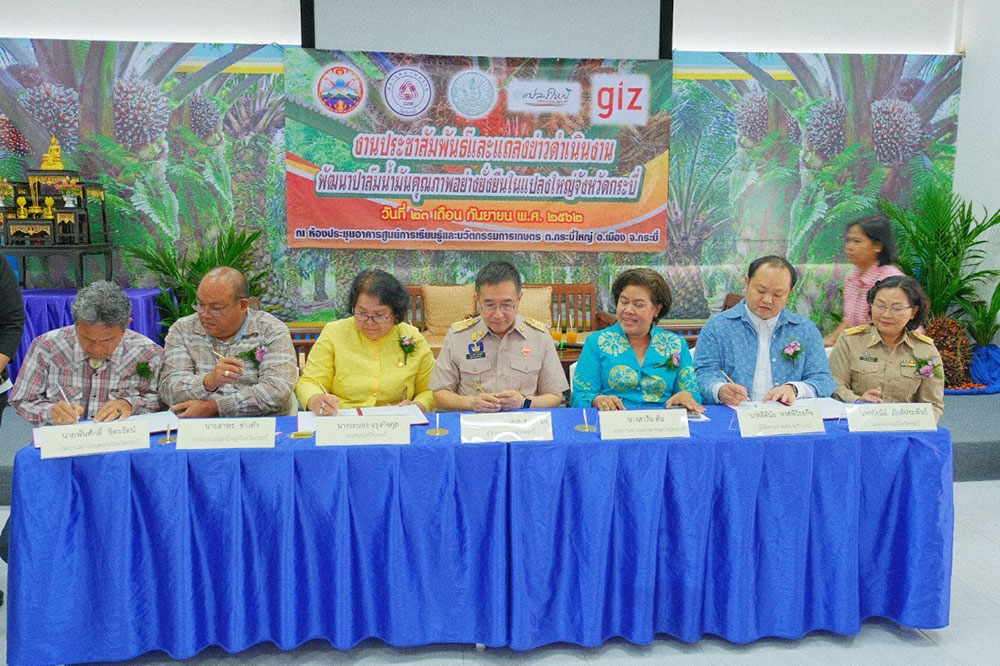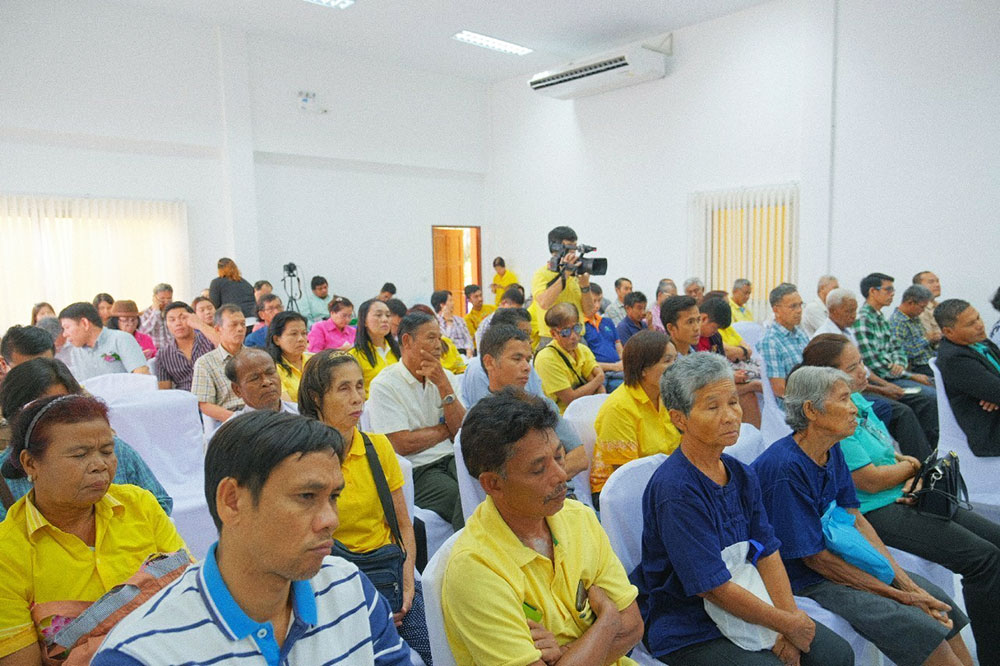In response to growing demand for sustainable palm oil products, Thai authorities agreed to speed up efforts for sustainable practices that will better the livelihoods of oil palm farmers in southern Thailand.
One of the governors is M.L. Kittibordee Prawit from Krabi province who said the local authorities are seeking deeper cooperation to widen the adoption of sustainable practices in oil palm plantations.
“Cooperation with local and international partners on sustainable development in palm oil supply chain is a good opportunity for small-scale oil palm farmers to learn to grow oil palm more sustainably and systematically,” Kittibordee said.
Last month, German International Cooperation (GIZ) signed a memorandum of understanding (MoU) on sustainable and quality oil palm production development with Krabi Provincial Agricultural Extension Office, megafarm enterprise of Krabi province and the Federation of Thai Industries of Krabi province.
The agreement aims to encourage oil palm producers along the supply chains to adopt the Roundtable on Sustainable Palm Oil (RSPO) standard that will ultimately benefit the nation, both economically and socially.
The engagement of stakeholders taken through a project named Sustainable and Climate-Friendly Palm Oil Production and Procurement (SCPOPP) in Thailand will promote the use of sustainable palm oil products in Thailand through credible global standards.
Some oil palm plantations in Krabi province where collaborative farming* exists were chosen as pilot project for the scheme and the adoption of sustainable practices is expected to reach other areas as well as palm oil crushing mills.
“Krabi supports sustainable practices in palm oil production and believe that the good practices will later result in a better image,” Kittibordee said.
In 2016, according to Palm Oil Analytics, Indonesia and Malaysia together account for nearly 87% of the global palm oil production. Thailand ranks third globally, producing 2.3 million tons of palm oil a year.
Governors of two other oil palm producing provinces – Chumphon and Surat Thani are following suit.
* Collaborative farming is two or more farmers working together in a formal arrangement for the mutual benefit of all those involved in the arrangement.
Source: https://www.teagasc.ie/rural-economy/farm-management/collaborative-farming/



